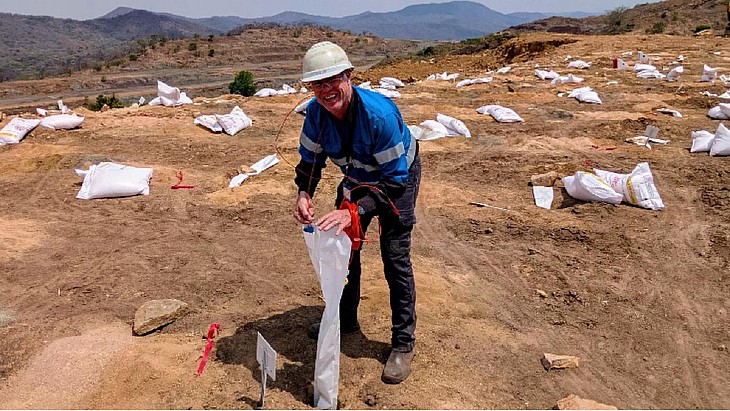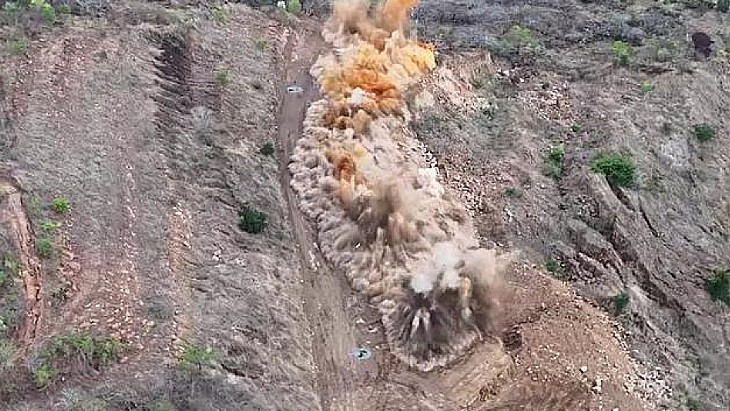Kayelekera first produced uranium in 2009, but when Australian-based Lotus Resources acquired the project from Paladin Energy in 2020 it had been under care-and-maintenance since 2014. Lotus announced plans for an accelerated restart of the project in 2024, and the recommissioned processing plant produced its first dried and drummed yellowcake in August 2025 using ore that was stockpiled from previous open pit mining operations.
Delivery of ore from the restarted mining operations to the run-of-mine (ROM) pad will begin in the coming weeks, Lotus said. Newly mined ore will supplement stockpiled ore in Kayelekera's processing and production operations, with freshly mined ore being combined with ore from the existing stockpiles to support the ramp-up of production: the company is targeting a steady-state production level of 200,000 pounds U3O8 (77 tU per month) in the first quarter of 2026.
Open pit mining is a technique used when an orebody - in this case, the uranium ore - lies close to the surface. Sometimes called open cut mining, or strip mining, the technique involves the removal of topsoil and rock that lie above the uranium ore, which is then processed at a mill to recover the uranium it contains. Blasting using explosives is an integral part of open pit mining operations.

Kayelekera Mining Manager Philippus Schoeman overseeing preparations for first mining blast (Image: Lotus Resources)
"The commencement of drill and blast activities marks another major milestone for the Kayelekera uranium mine. The stockpiles we have been processing continue to outperform our expectations, and the transition to freshly mined ore will support the ramp-up trajectory," Lotus Managing Director Greg Bittar said.
Lotus owns 85% of the project, with the Government of Malawi owning the remaining 15%.
The company has shared a video of the blast on social media.







_15863.jpg)







